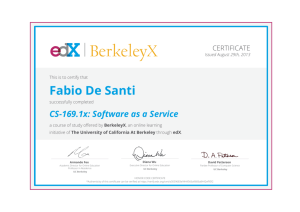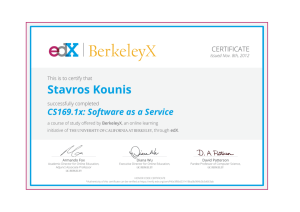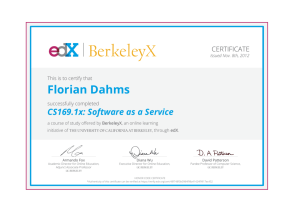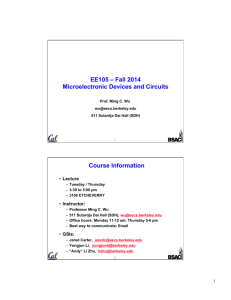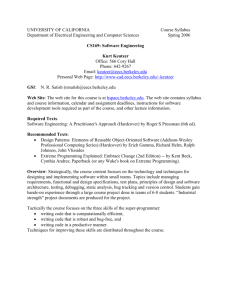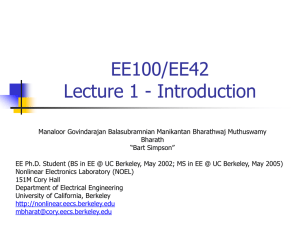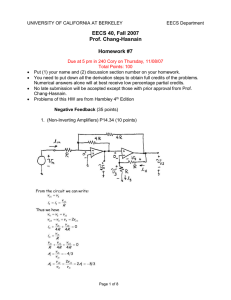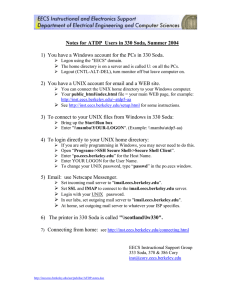Dr. Edward A. Lee - Dunip Technologies
advertisement
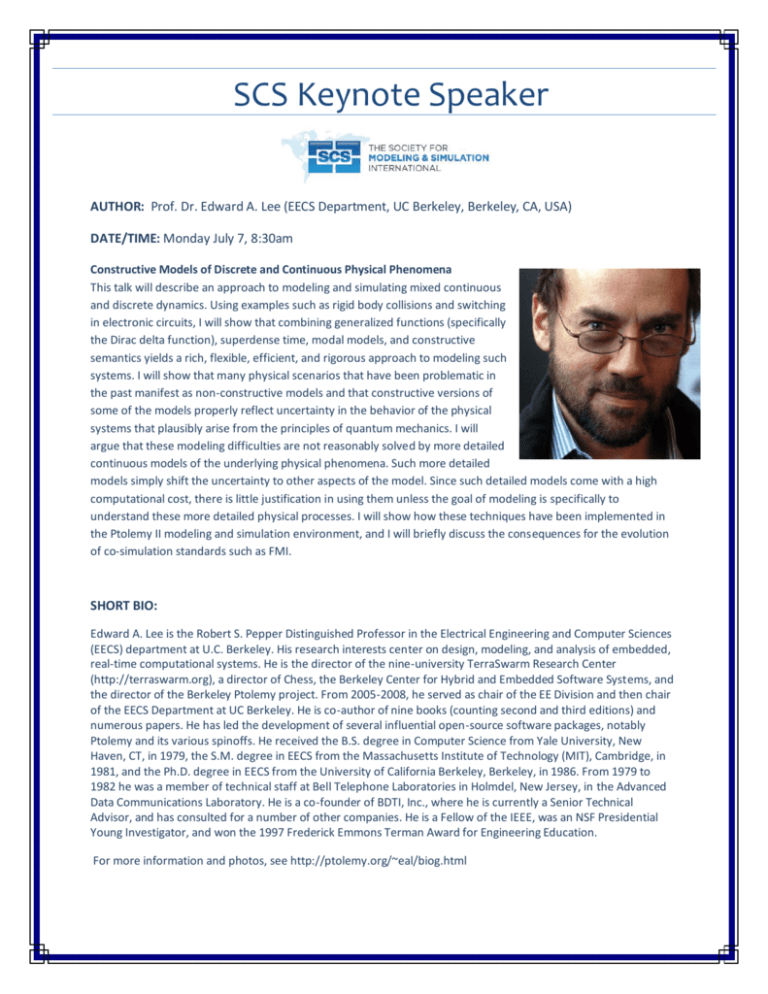
SCS Keynote Speaker AUTHOR: Prof. Dr. Edward A. Lee (EECS Department, UC Berkeley, Berkeley, CA, USA) DATE/TIME: Monday July 7, 8:30am Constructive Models of Discrete and Continuous Physical Phenomena This talk will describe an approach to modeling and simulating mixed continuous and discrete dynamics. Using examples such as rigid body collisions and switching in electronic circuits, I will show that combining generalized functions (specifically the Dirac delta function), superdense time, modal models, and constructive semantics yields a rich, flexible, efficient, and rigorous approach to modeling such systems. I will show that many physical scenarios that have been problematic in the past manifest as non-constructive models and that constructive versions of some of the models properly reflect uncertainty in the behavior of the physical systems that plausibly arise from the principles of quantum mechanics. I will argue that these modeling difficulties are not reasonably solved by more detailed continuous models of the underlying physical phenomena. Such more detailed models simply shift the uncertainty to other aspects of the model. Since such detailed models come with a high computational cost, there is little justification in using them unless the goal of modeling is specifically to understand these more detailed physical processes. I will show how these techniques have been implemented in the Ptolemy II modeling and simulation environment, and I will briefly discuss the consequences for the evolution of co-simulation standards such as FMI. SHORT BIO: Edward A. Lee is the Robert S. Pepper Distinguished Professor in the Electrical Engineering and Computer Sciences (EECS) department at U.C. Berkeley. His research interests center on design, modeling, and analysis of embedded, real-time computational systems. He is the director of the nine-university TerraSwarm Research Center (http://terraswarm.org), a director of Chess, the Berkeley Center for Hybrid and Embedded Software Systems, and the director of the Berkeley Ptolemy project. From 2005-2008, he served as chair of the EE Division and then chair of the EECS Department at UC Berkeley. He is co-author of nine books (counting second and third editions) and numerous papers. He has led the development of several influential open-source software packages, notably Ptolemy and its various spinoffs. He received the B.S. degree in Computer Science from Yale University, New Haven, CT, in 1979, the S.M. degree in EECS from the Massachusetts Institute of Technology (MIT), Cambridge, in 1981, and the Ph.D. degree in EECS from the University of California Berkeley, Berkeley, in 1986. From 1979 to 1982 he was a member of technical staff at Bell Telephone Laboratories in Holmdel, New Jersey, in the Advanced Data Communications Laboratory. He is a co-founder of BDTI, Inc., where he is currently a Senior Technical Advisor, and has consulted for a number of other companies. He is a Fellow of the IEEE, was an NSF Presidential Young Investigator, and won the 1997 Frederick Emmons Terman Award for Engineering Education. For more information and photos, see http://ptolemy.org/~eal/biog.html


